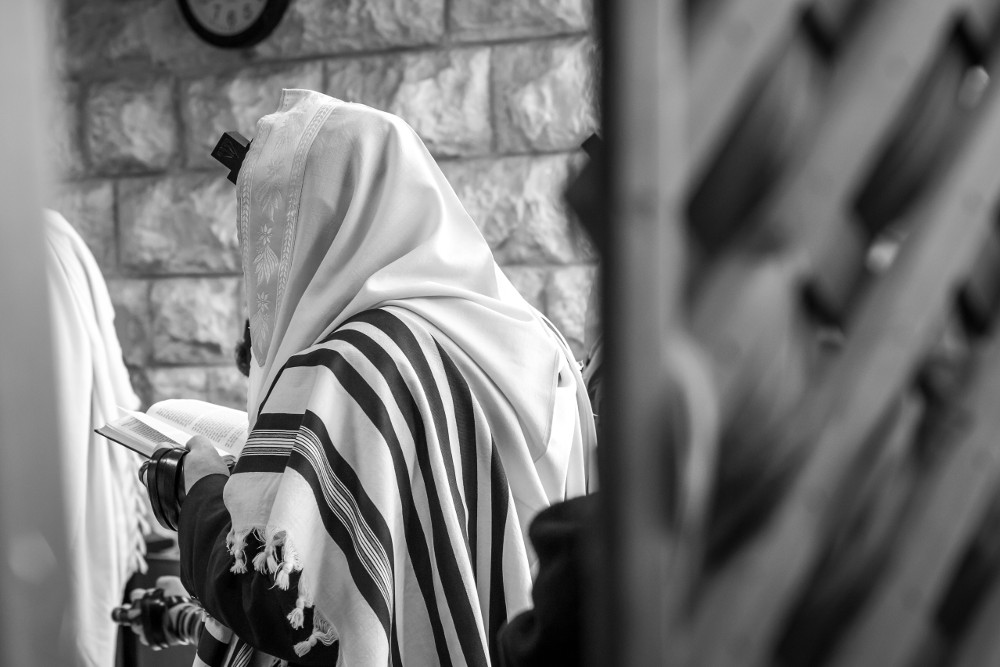Just a few days before His death on the cross, Jesus made it very clear that He would not return until the Jews of Jerusalem welcome Him back with the Messianic phrase “Baruch Haba B’Shem Adonai” – Blessed is He who comes in the Name of the Lord (Mt. 23:37-39). Today, thanks to the double miracle of the regathering of the Jewish people to their ancient homeland and the restoration of the Hebrew language, this phrase itself is again in common use throughout the land of Israel. On any given day hearty cries of ‘Baruch Haba’ or ‘welcome’ can be heard echoing among the golden-hued buildings of Jerusalem’s prophetic streets.
But is Israel today ready to say ‘Baruch Haba’ to Jesus? Are the Jewish people getting closer to reversing the historic rejection of Jesus and welcoming him back as the Jewish Messiah? The past year has seen significant stumbling blocks being removed, and I believe we are getting closer to that glorious day.
Orthodox Rabbis ‘Welcome Jesus for Christmas’
Although Jesus was popular among the people of His day, He was widely rejected by His contemporary religious leaders. Today, in marked contrast, we can see a growing movement among orthodox Jewish leaders which is breaking down barriers towards Christianity and the person of Jesus.
On Dec. 3, 2015 a group of 25 prominent Orthodox Jewish Rabbis and leaders from Israel and around the world called for a renewed and more positive look at Jesus. Despite the obvious differences between Judaism and Christianity, they expressed their view of Christianity as being “neither an accident nor an error, but the willed divine outcome and gift to the nations”. By February 2016, the number of Rabbis co-signing this document has grown to over 50.
Apart from acknowledging Christianity as being from God, the statement also goes on to look at the question of Jesus and the Torah (or the Law). One of the chief charges of the Rabbis in Jesus’ time was that He was undermining the Torah. From their perspective it was obvious that He was not the Messiah, for how could the Messiah contradict God’s own commandments through Moses?
Taking a fresh look at this issue, this group of Rabbis state that Jesus “strengthened the Torah of Moses majestically… and not one of our Sages spoke out more emphatically concerning the immutability of the Torah.” They go on to describe how He removed “idols from the nations.” If Jesus is no longer seen as contradicting Torah, then it paves the way for Him to at least be considered a possible Messiah and for His message to be re-examined by the Jewish people. David Lazarus of the Messianic Magazine ‘Israel Today’ describes this as “the undoing of 2,000 years of Jewish rejection and animosity towards Jesus, a miracle by any estimation.”
How did this statement come about?
In their statement, the Rabbis explain that it is in response to the removal of another stumbling block – Christian anti-Semitism. It is a sad fact of history that Jews have generally fared better in Islamic countries than in ‘Christian’ Europe with its pogroms, crusades, the Inquisition and ultimately the Holocaust. While many Christians are only vaguely familiar with this dark chapter of Church history, the memory remains seared into the consciousness of many Jewish people. These dark memories present an instant challenge to building relationships with Christians – let alone considering Jesus to be the Messiah. As the Jewish former Prime Minister of Britain Benjamin Disraeli once explained: “The Jews are a nervous people. Nineteen centuries of Christian love have taken a toll.”
The Rabbis note in their statement that a number of Christian leaders have been seeking to confront and correct historic anti-Semitic teachings in the Church. They are therefore simply responding to the gesture of Christian friendship. One can’t help but think that the prominent Evangelical support for Israel since her re-birth in 1948 has also been a contributing factor. These Rabbis, like many Israelis in general, realise that they have very few friends in the world apart from the Evangelical Christian community.
The history of Christian anti-Semitism is a dark, long and depressing topic to study – and one can feel stuck in the enormity of the burden of guilt due to the Church. Thankfully these Jewish leaders are accepting and receiving the Christian expressions of repentance and desire for renewed friendship allowing us to move forward. This process of forgiveness and reconciliation is therefore removing historical objections to Christianity and is helping pave the way for the time when the Jewish people will say ‘Baruch Haba’ to Jesus as the promised Messiah.

Enoch Lavender was born in Australia, raised in Norway, spent time living in China and is now based in Melbourne, Australia. He has been studying Hebrew and the Jewish roots of our faith for the past decade, and has a keen interest in the Middle East from a Bible prophecy perspective.



